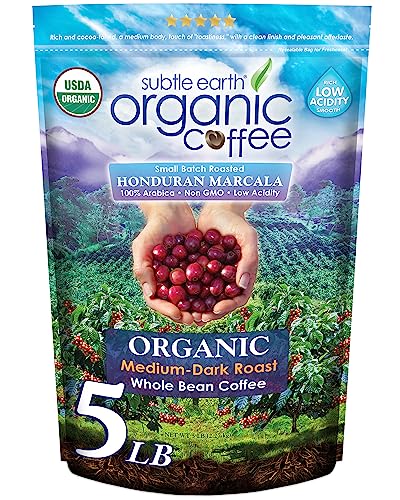Is organic food really healthier? Is it worth the expense?
Eating only organic foods has been associated with several potential benefits, although it’s important to note that scientific research on some of these benefits is ongoing and opinions can vary. Here are some of the potential benefits of eating only organic foods:
The term “organic” refers to the way agricultural products are grown and processed. Even though regulations vary from country to country, in the US, organic crops must be grown without the use of synthetic herbicides, pesticides, and fertilizers, or bioengineered genes (known as GMOs).
Organic livestock raised for meat, eggs, and dairy products must be raised in living conditions that accommodate their natural behaviors (such as the being able to graze on pasture) and they must be fed only organic feed and forage. Organic livestock may not be given antibiotics, growth hormones, or any animal by-products.
Here are some of the potential benefits of eating only organic foods:

Reduced Pesticide Exposure: Organic farming practices generally limit or avoid the use of synthetic pesticides and herbicides. This can lead to lower pesticide residues on organic produce, reducing the risk of pesticide exposure for consumers.
Higher Nutrient Content: Some studies suggest that organic fruits and vegetables may have higher levels of certain nutrients, such as antioxidants and certain vitamins. However, the differences in nutrient content can vary and depend on factors such as soil quality and growing conditions. You may be able to consume more nutrients by eating only organic foods.
Environmental Benefits: Organic farming practices tend to focus on sustainability and soil health. They often involve crop rotation, composting, and reduced synthetic inputs, which can contribute to healthier soils, reduced water pollution, and better overall ecosystem health.
No Genetically Modified Organisms (GMOs): Organic foods are generally non-GMO, meaning they are not genetically engineered to have specific traits.
Potential Taste and Flavor Benefits: Some people believe that organic foods have a better taste and flavor compared to conventionally grown foods. This can be influenced by factors like soil quality and variety selection.
No Synthetic Growth Hormones or Antibiotics: Organic animal products, such as meat, poultry, and dairy, are produced without the use of synthetic growth hormones and antibiotics, which can be used in conventional animal farming to promote growth and prevent diseases.
Improved Animal Welfare: Organic farming standards often include guidelines for animal welfare, including access to outdoor spaces, natural diets, and reduced stress. This can lead to improved living conditions for animals.
Support for Sustainable Agriculture: Your choice of eating only organic food supports agricultural practices that prioritize sustainability, biodiversity, and the long-term health of ecosystems.
Reduced Antibiotic Resistance: Limiting the use of antibiotics in organic animal farming may contribute to lower rates of antibiotic-resistant bacteria in the food supply and the environment.
Personal and Environmental Health: Some individuals may choose a diet of eating only organic foods to reduce their exposure to synthetic chemicals and promote their own health as well as the health of the environment.
Choosing to Eat Only Organic Foods:
When choosing to eat only organic foods, it is recommended that you focus on a balanced and varied diet that includes a variety of whole foods, regardless of whether they are organic or conventional. If you have specific health concerns or dietary preferences, consulting with a registered dietitian or nutritionist can provide personalized guidance.
It’s important to note that while these potential benefits exist, the overall impact of eating only organic foods can vary based on factors such as an individual’s dietary choices, lifestyle, and health status. Additionally, the cost of eating only organic foods is often higher than conventionally grown foods, which may be a consideration for some consumers.
When deciding whether start adding only organic foods into your diet, it’s advisable to consider your personal values, health goals, and available budget. It’s also a good idea to stay informed about the latest research on eating only organic foods and consult with healthcare professionals for personalized guidance.



